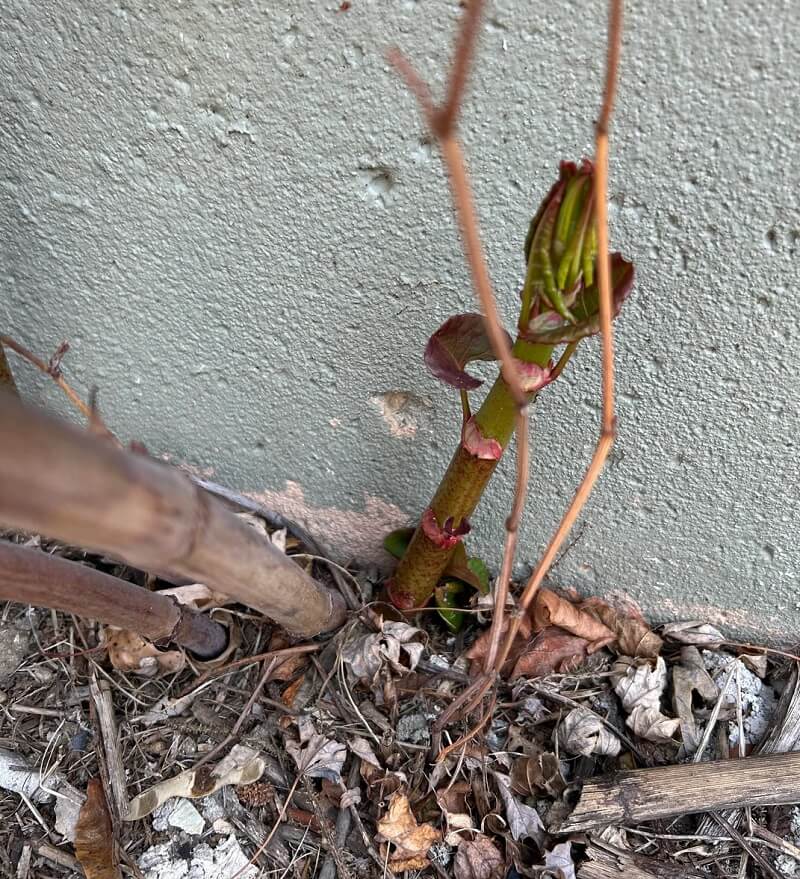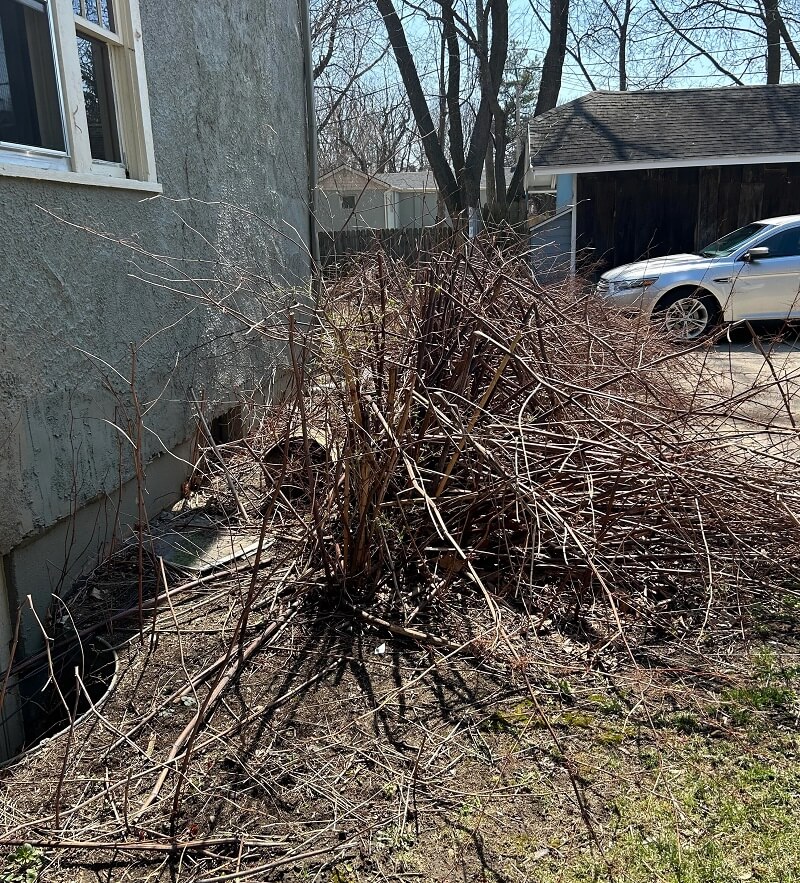Japanese knotweed's name belies its true nature — it is a weed, but not of the garden variety.
One homeowner found that out quickly after reaching out to the r/gardening community on Reddit about a persistent species that kept popping up by the side of their house.


"What is this plant? Grows on the side of my house and dies every winter," they asked, adding that the flowers it produces in the fall cause allergies.
The attached photos show some green and red stands and a thicket of seemingly dead shoots.
One commenter identified the invasive species as a Japanese knotweed and informed the original poster that it has a "really deep tap root" and is "nearly impossible to kill."
"Thanks! This plant is AWFUL," the original poster responded.
According to the National Park Service, Japanese knotweed is similar to bamboo and can break through pavement and foundations. The plant is native to Asia and arrived in North America in the 1800s.
It has a deep, complex root system and can reach up to 10 feet, making it difficult to control. Its widespread and fast-paced growth also means it can block sunlight for native plants and deplete the soil of minerals and nutrients.
Japanese knotweed is so problematic that the U.S. Department of Agriculture Forest Service recommends a systematic application of herbicide despite the potential environmental hazards it poses. The organization also suggested repeated cuttings and a "plan to reintroduce native or
desirable landscape or crop plants" to allow "the area to recover and resist future invasions."
Planting native species is a low-maintenance, eco-friendly option that can save homeowners time, money, and water since natives are adapted to the environment and don't require fertilizer or pesticides. Furthermore, it can support pollinators, which are crucial in protecting our food supply.
Another method to help mitigate the damage knotweed can cause is simply to eat it. Consuming invasive species has become a popular method to keep them at bay, and one content creator has turned Japanese knotweed into pickles, desserts, and a dip.
The rest of the comment section from the original post warned the homeowner of the plant's destructive capabilities.
"You need to notify your local council/authority immediately," a person wrote. "That plant will destroy the foundations of your house."
"Destroy it with extreme prejudice," another chimed in. "There are companies that specialize in eradicating it because it's so persistent and difficult to get rid of."
Join our free newsletter for easy tips to save more, waste less, and help yourself while helping the planet.









